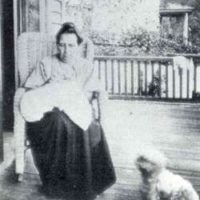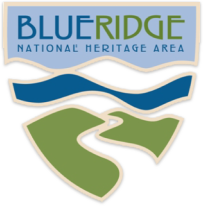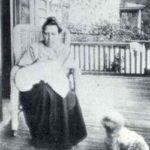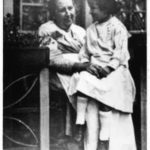
Jane Hicks Gentry
Known as “a singer among singers,” Jane Hicks Gentry had an amazing repertoire of songs, ballads, tales, and riddles. She shared them with collectors, including Cecil Sharp, who published many of the ballads she sang in his important collection English Folk Songs from the Southern Appalachians. Gentry’s fantastic memory helped provide Sharp with 70 songs and ballads, more than he collected from any other single source.
Gentry was born in Watauga County during the Civil War. Her mother was the daughter of Council Harmon, and Jane was close to her grandfather when she was young. Known as “Old Counce,” her grandfather was the source of many stories and songs that became part of the rich Beech Mountain tradition. Gentry took the Beech Mountain repertoire of stories and songs with her when she and her family moved to Madison County in the mid-1870s.
Betty Smith, historian and biographer of Jane Hicks Gentry, notes, “Jane Gentry was a good neighbor, and in that role she made use of her store of tales and songs.” Gentry helped run a boarding house in Hot Springs, and she often sang while she worked. In the evenings, the family would gather around the fire, and Gentry would tell stories and sing. Her home was welcoming, and she had frequent visitors, particularly children in the community. Smith notes, “Jane Gentry was not only a tradition bearer in her own family, she kept the songs and stories alive by singing and telling them wherever she was.”
In addition to being a great singer, Jane Hicks Gentry was a renowned storyteller. She provided at least 15 Jack Tales for collector Isabel Gordon Carter, published in the Journal of American Folklore in 1925. Her informal visits with writer Irving Bacheller resulted in a novel, short stories, and magazine articles. She frequently shared stories and songs with children attending the Dorland Institute, and she appeared at the first meeting of the Ballad Society in Asheville.
Betty Smith notes that there is no evidence that Jane Hicks Gentry ever made any money for singing or telling stories. “There was no market for her music in the early twentieth century, and she gave it freely,” Smith says. These traditions were woven into the fabric of Gentry’s daily life. The songs, ballads, stories, and riddles she shared with collectors, scholars, and, most-importantly, community members helped usher the tradition into the twentieth century.




